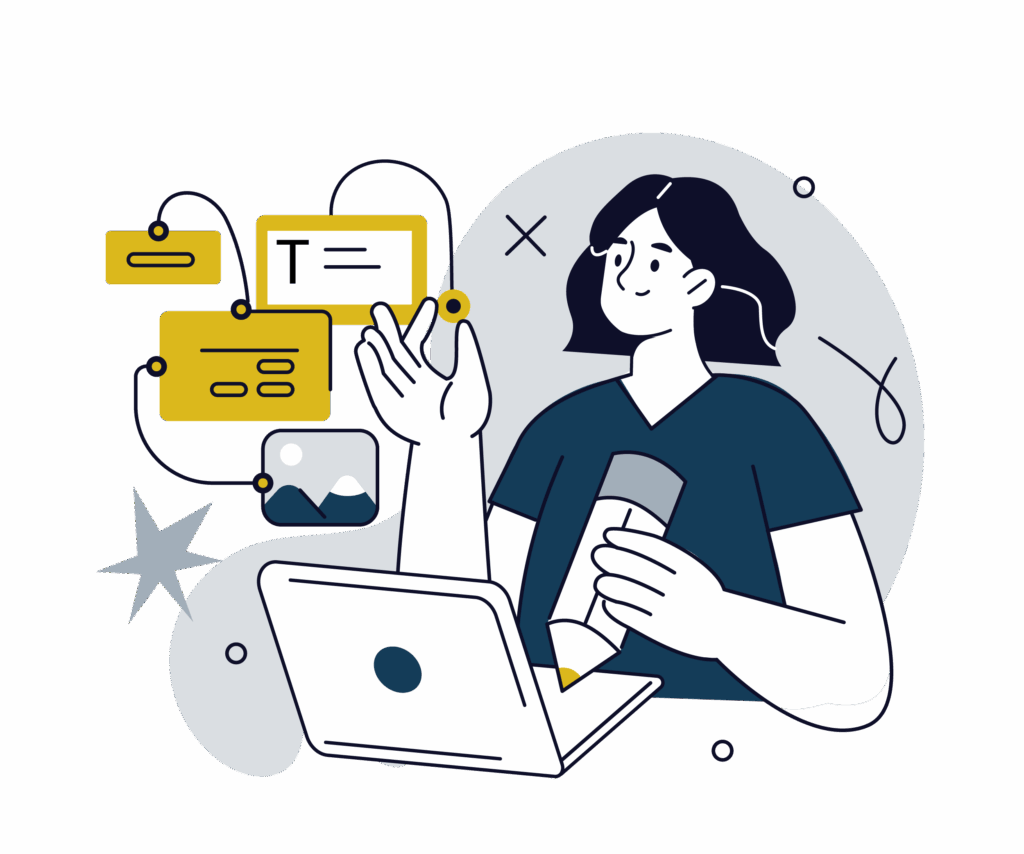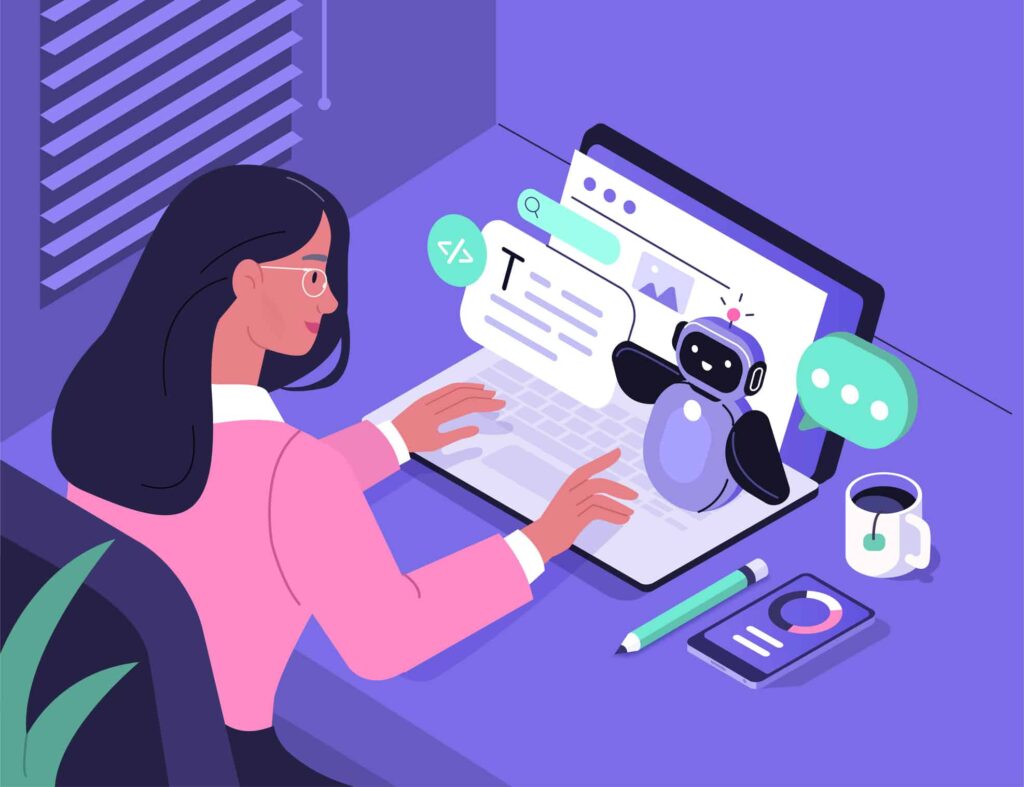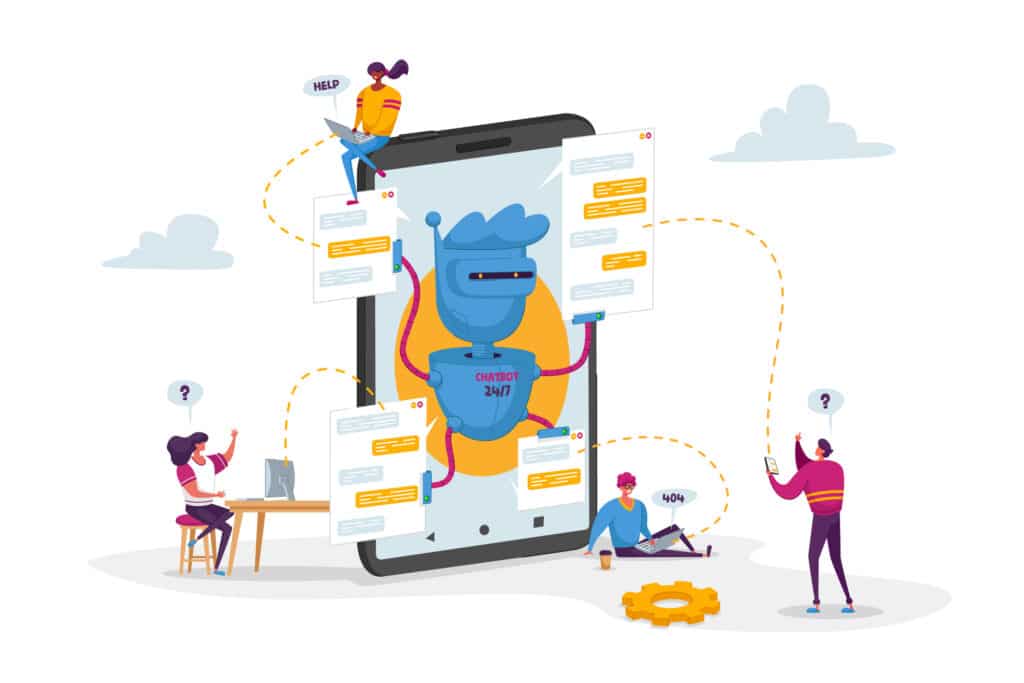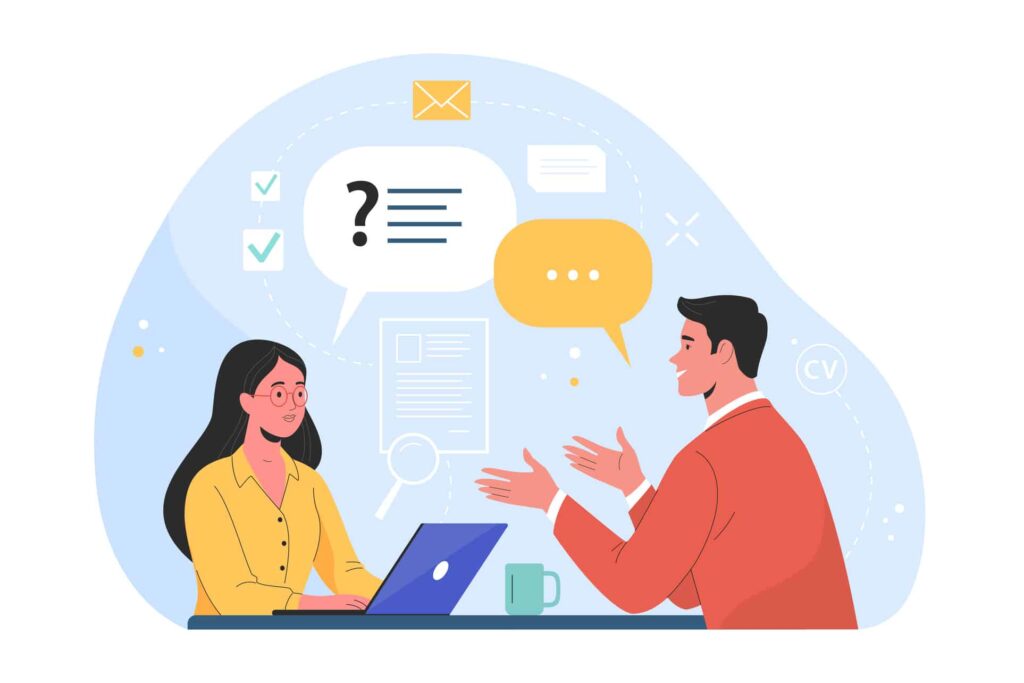How to Build a Custom Editorial Chatbot in 4 Easy Steps

You’re deep into your workday, juggling meetings, content reviews, and deadlines when a writer pings you with a question about your brand’s capitalization rules. Do you stop what you’re doing to dig through the style guide, reply on autopilot, or wish you had an assistant to handle these recurring questions?
Enter the custom AI editorial chatbot. Think of it as your “always-on” editorial team member, trained with your brand style guide, FAQs, and example content. It’s a game-changer for consistency and efficiency, giving you back a bit of time to, well, breathe.
Why You Need an Editorial Chatbot
As someone who wears many hats — marketing strategist, mom of two, and fitness enthusiast — I know the power of tools that save time without sacrificing quality. Here’s what a chatbot can do for your editorial process:
- Consistency: Maintains brand voice and tone across all content (so no one misuses your carefully curated terminology when you’re not around).
- Efficiency: Answers questions instantly, shaving hours off back-and-forth emails.
- Accessibility: Levels the playing field for freelancers and junior marketing team members alike.
It’s like having a virtual me — minus the coffee habit — on hand to answer questions.
4-Step Guide to Building an Editorial Chatbot
Here’s how to make it happen:
1. Gather Your Resources
Remember packing for a family trip where you double-checked every toothbrush, snack, and iPad charger? Building a chatbot starts the same way: Gather everything it’ll need upfront. This includes your style guide, approved content samples, and any FAQs your team frequently references.
2. Choose Your Tool
Whether you’re a tech whiz or just learning the ropes, there’s a platform to fit your needs. Think of it like picking the right stroller: Do you want lightweight and intuitive (ChatGPT-style tools) or all-terrain functionality (custom AI solutions)?
Important: If you’re working with sensitive information, be sure to use a closed-loop AI platform to keep your data secure and ensure it’s not used to train external models. Platforms with privacy-first policies, such as enterprise-grade AI tools, are your best bet.
Also, remember: AI isn’t perfect. Always fact-check responses to avoid errors that could compromise the quality or accuracy of your content. It’s a powerful tool, but you still need to guide it — like training wheels on a bike.
3. Train Your Chatbot
Upload your documents into your AI platform’s custom chatbot configurations and test them with real-life scenarios. For instance, ask, “Do we capitalize product names?” and see how it responds. It’s like teaching a kid to tie their shoes: Trial, error, and patience lead to success.
4. Pilot with Your Team
Roll out the chatbot to a small group of trusted team members for feedback. Like a family movie night with a new Disney release, you’ll know quickly if it’s a hit (or needs tweaks).
Real-World Applications
Let me paint a picture of how this works:
- A writer types, “Do we capitalize product names?” and gets the answer, “Yes, per section 4 of the style guide.”
- A freelancer wonders, “What’s our preferred term for remote work?” The chatbot offers, “Flexible work arrangements.”
In my world, this means fewer interruptions during dinner prep or treadmill time. For your team, it means smoother workflows and fewer bottlenecks.
Watch: How to Build Your Own Editorial Chatbot in Minutes!
Ready to Build Your Chatbot?
With a little upfront effort, a custom editorial chatbot becomes your team’s secret weapon. It streamlines content creation, reinforces your brand’s consistency, and, let’s be honest, might just save your sanity.
Ready to give it a try? If you need a guide — or just a cheerleader — let me know. I’m here, juggling kids’ school schedules and campaign timelines, cheering you on from my corner of the multitasking universe.
How Editorial, Design, and Analytics Teams Are Supercharging Their Workflows with AI
If you’ve been tiptoeing around the idea of incorporating AI into your content marketing workflows, consider this your gentle nudge…
When to Use AI vs. Search: A Smarter Guide for Content Marketers
We talk a lot about optimizing workflows with AI, but here’s something we don’t talk about enough: when not to…
Reduce, Reuse, Re-Prompt: How Building a Prompt Library Creates a Greener AI Workflow
At BackPocket, we believe the best way to navigate new tech is together. That’s why our team gathers every month…
Michelle Jackson Named WICMA’s Content Marketer of the Year
We’re beyond excited to share that our very own Michelle Jackson, Chief Strategy Officer at BackPocket, has been named Content…
The Wild West of Content Optimization: Why I’m All in on AEO and GEO
Over the last six months, I’ve found myself deep in what feels like the wild, wild west of content optimization:…
How to Find the Right Content Strategy Agency
Great content marketing starts with a solid game plan. That’s where a content strategy agency comes in. They don’t just…
How Content Marketing Can Help Small Businesses
There’s no sugar-coating it: When you’re operating a small business, it’s next to impossible to match — or even come…
5-step Content Audit Checklist [With a Template!]
A cornerstone of any powerful content marketing strategy begins with a comprehensive content audit — a deep dive into what’s…
What Content Marketing KPIs Should You Track?
It’s no secret that many people are drowning in data. And for content marketers, too much data is just as…
How to Create a Content Measurement Framework
When it comes to consistent, effective content marketing measurement, the data doesn’t lie. The Content Marketing Institute’s B2B Content Marketing…









